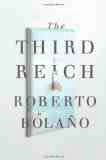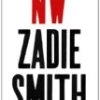Books
Book Review: The Third Reich by Roberto Bolaño

- The Third Reich
- Farrar, Straus and Giroux, 288 pp.
Bolaño-rific, or just more Nazis?
In 2008 Roberto Bolaño’s 900-page epic 2666 was published. Appearing out of relative obscurity, Bolaño’s novel was soon being discussed as a potential masterpiece and, perhaps more importantly, sustained steady popularity in the bookshops. Sadly though, Bolaño saw none of this: he died only a few months after the first draft was completed and nearly 6 years before the English publication.
Despite his early death, support for Bolaño’s writing has only increased since 2666, with a flurry of new titles in the last couple of years alone. But as grateful as any reader might be for this veritable glut, the cynic can only but question these halcyon days. If these early works are so deserving of our attention, why has it taken until now to publish them? Why such extravagant bindings and covers for such slim volumes?
These are the questions that form the atmosphere into which The Third Reich is now published. In it we find a young German couple, Udo and Ingeborg, as they first arrive on holiday on the Costa Brava – previously part of Spain’s untouched beauty, now heaving tourist trap for all and sundry. Still, Udo remembers it fondly from childhood.
As a grown-up though, Udo has become the war-games champion of Germany; not necessarily a sporting achievement in itself, but still, almost a profession. And so, as much-needed relief from the responsibility of commanding fictional battalions, he has come to the seaside for a little R&R.
There is the errant hope, after 25-odd pages of historical geekery, and with the hint that Ingeborg is quite attractive, that something interesting will soon happen. On arriving at the Hotel Del Mar (trans. “sea hotel”) however, Udo’s first request is for a table on which to play his war-game. Seemingly, as long as Ingeborg can sunbathe topless all day and that Udo joins her in the sticky heat of the clubs at night, that classifies as a break.
Udo’s plan during the holiday, in fact, is to perfect the ultimate war-games strategy. Again, no mean feat, given that this is no ordinary boardgame: five feet across, dazzling complex with a hexagonally divided map of the globe, The Third Reich is a historically accurate simulation of World War II, invasions, alliances, massacres, everything from Tokyo to Tripoli.
And given that egotistical, socially incompetent teenage recluses form the majority of his gaming community, Udo’s motives appear innocent enough, but the way in which Bolaño has him lay out his plan – mesmerizingly, hypnotic in his attention to detail – cannot help but point to more unhealthy reasons: is Udo trying to prove that the Nazis could have won the war?
Meanwhile, Ingeborg, and her free spirit, are making it difficult for Udo to concentrate on his re-writing of history. As SS paratroopers regroup on the outskirts of London, Ingeborg has befriended another young German couple and spends more and more time with the energetic, drink-happy Charly and his divorcee girlfriend Hanna.
Before long Ingeborg has regular company on the beach during the day and those somewhat mundane evenings have turned into mammoth drinking sessions at the bars and clubs beyond the tourist district.
At this point the four – Udo does manage to keep up – become acquainted with ‘the Lamb’ and ‘the Wolf’. These two locals are friendly enough, but ultimately marred by that low-level tension that comes when you’re befriended by a couple of thugs. They love Charly’s zest for life, and drunken risk-taking, and of course they fancy having the girls around, but Udo unnerves them.
They say he never drinks enough, but more likely his fluency in Spanish and hotel room hobby blur the lines for them; Udo is not simply another tourist, so the Wolf and Lamb cannot leach off his holiday feeling any more than they can the other locals.
In turn Udo distances himself from the group, partly worry about Ingeborg’s night time activities and dysfunctional friends, but also more selfishly fixated on the progress of his game.
Bolaño never lets Udo complete his winning formula though. Suddenly embroiled in a series of increasingly tragic events involving an enigmatic vagrant called El Quemado (trans. “the burns victim”), Udo is systematically shown that the past has more than just an aesthetic value, acting as an interesting, even meaningful, backdrop to a board game; it has bite.
What Bolaño manages to do, with a briskness of pace surprising after many languid pages, is show that though the waters of a pond may be still for many hours, ultimately, you never know what lies beneath.









You must be logged in to post a comment Login